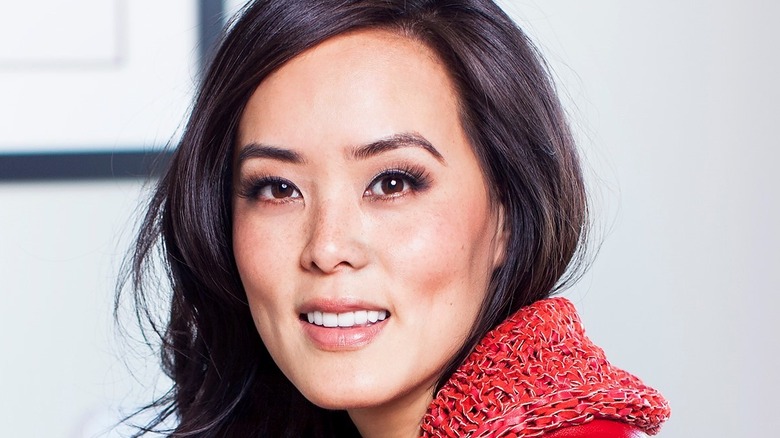Surrogacy Expert Evie Jeang On What To Expect Before And After Egg Harvesting - Exclusive
Thanks to reproductive technologies such as egg freezing, in-vitro fertilization (IVF), and surrogate parenting, biological parenthood is now a realistic possibility for more people. But this doesn't mean that becoming a parent through these technologies is easy. It's a long and costly progress, and prospective parents must navigate a complex range of medical, emotional, financial, and legal issues.
Surrogacy expert Evie Jeang understands these challenges on a deeply personal level. As both an attorney specializing in cases involving surrogacy and a single mother whose own child was carried by a surrogate, she's seen and experienced both the rewards and potential pitfalls of the surrogacy process and has dedicated her career to demystifying surrogacy and IVF for prospective parents.
In an exclusive interview with Health Digest, she shared some common challenges and misconceptions about surrogacy and IVF. For both, the first step is often the harvesting and freezing of the biological mother's eggs. Jeang explained what prospective mothers should expect before and after having their eggs harvested.
If you're thinking about freezing your eggs, do it sooner rather than later
Women choose to freeze their eggs for a number of reasons, such as the knowledge that they may not be ready for motherhood until after their reproductive peak or medical issues that may preclude future pregnancy, as was the case with one of Evie Jeang's friends. "My entire surrogacy adventure and career all started through a simple conversation with a friend of mine about 15 years ago. She was undergoing chemotherapy and recommended that I freeze my eggs," Jeang said. "Two years ago, she lost her battle against breast cancer and is no longer with me now. But I will never forget her advice and will forever be grateful to her. She is the reason I am a mother."
Jeang advises would-be parents to start the egg-harvesting and freezing process as soon as possible. "Many IVF clinics will tell female patients that it would be best to go through egg retrieval and egg freezing by or before the age of 35," she said. "As females age, the quality and quantity of our egg follicles decrease. We do not produce as many eggs as we get older. You're going to want more eggs than less."
The egg retrieval process can have risks
No two people are exactly alike, so the egg retrieval process will be different for everyone. One unpredictable variable is the number of viable eggs that can be retrieved. "I've even told my clients that going through multiple egg retrievals would benefit them," Evie Jeang said. "Not every egg produced becomes a healthy embryo."
But for anyone looking to harvest their eggs, one important fact holds true: The process of retrieving eggs is an invasive medical procedure with known risks that prospective parents should be willing to accept and prepare for. "At the end of the day, it is still a medical procedure," Jeang said. "Egg donors and surrogates will have to undergo hormone therapy and the risk of complications. Therefore, life insurance is applicable in donor and surrogate cases."
The risks don't end after the eggs are successfully extracted. "The recovery time for egg retrieval and surrogate deliveries varies," she said. "As a donor, you may experience hormone imbalances and potential complications later in life."
For more information, please visit https://surrogacyconcierge.com.


